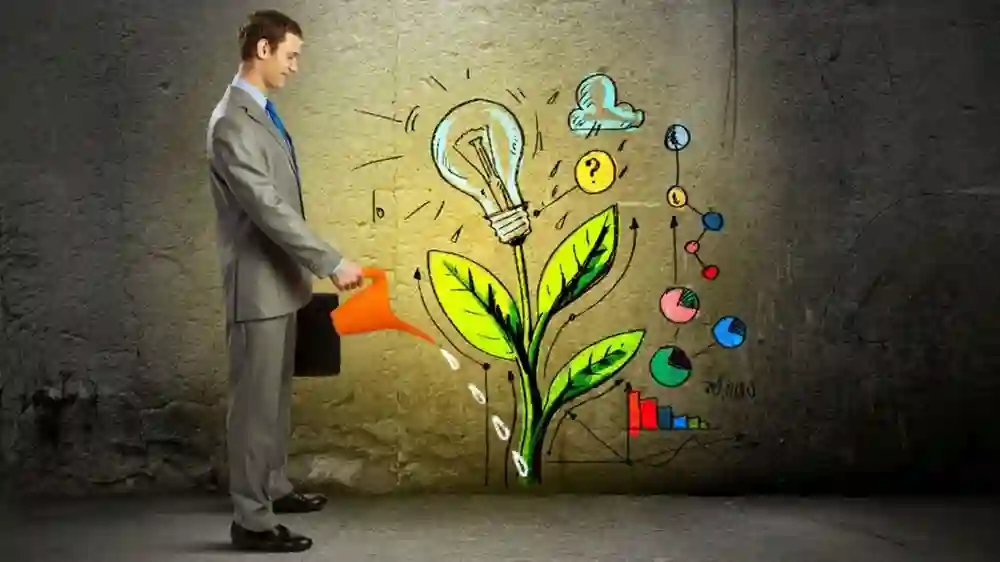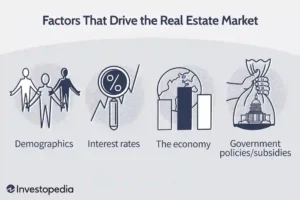Mastering Business Strategies for Sustainable Growth in 2025

In the fast-evolving world of business, business strategies are the key to long-term success. As we look toward 2025, organizations must recognize that a one-size-fits-all approach to business growth is no longer sufficient. To thrive in an increasingly competitive and unpredictable marketplace, businesses need innovative and adaptable strategies that prioritize sustainability. Sustainable growth is no longer just about profit maximization—it involves integrating environmental, social, and governance (ESG) factors into business models while ensuring that resources are used wisely for future generations.
In this article, we will explore the most effective business strategies for achieving sustainable growth in 2025, taking into account emerging trends, technological advancements, and the shifting expectations of consumers, employees, and investors.
The Changing Landscape of Business Strategies in 2025
The business landscape is rapidly shifting, and the strategies that worked in the past may not be as effective in the years to come. Key factors influencing business strategies in 2025 include technological disruption, climate change concerns, evolving customer expectations, and the need for companies to become more agile and resilient.
To stay competitive, businesses will need to focus on building flexible models that can quickly adapt to market changes. The importance of innovation and technology will continue to grow, but businesses must also align their operations with global sustainability goals to secure long-term success. This calls for a holistic view of business strategies, one that emphasizes growth in a responsible and ethical way.
1. Embracing Technological Innovation for Competitive Advantage
One of the most effective business strategies for achieving sustainable growth in 2025 is embracing technological innovation. The rapid pace of digital transformation offers businesses numerous opportunities to enhance operational efficiency, improve customer experience, and open new revenue streams.
Artificial Intelligence (AI), Machine Learning (ML), and automation are no longer futuristic concepts—they are already transforming industries worldwide. By leveraging these technologies, businesses can optimize processes, reduce waste, and drive productivity. Furthermore, digital tools can help companies track their environmental footprint, allowing them to set and monitor sustainability goals.
Blockchain, for example, is increasingly being used to create transparent and traceable supply chains, enabling businesses to demonstrate their commitment to sustainability. Internet of Things (IoT) devices are helping companies monitor energy consumption and identify areas for improvement in real time, ensuring that resources are used as efficiently as possible.
2. Prioritizing Sustainability in Every Aspect of Operations
In 2025, businesses that do not prioritize sustainability will likely fall behind their competitors. Consumers, employees, and investors are becoming more conscious of environmental and social issues, and they expect companies to take action. A major shift toward sustainable business practices is essential to not only remain relevant but also to thrive in the coming years.
One of the most crucial business strategies for sustainable growth is integrating sustainability into every aspect of the business. This means adopting eco-friendly production methods, reducing waste, promoting circular economies, and using renewable energy sources. Companies that embrace sustainability as a core value will build stronger brand loyalty and enjoy long-term profitability.
Sustainable supply chains are another key area of focus. By working with environmentally responsible suppliers and ensuring ethical sourcing, businesses can reduce their environmental impact while building trust with their stakeholders. This approach will become even more important as consumers and regulators demand greater transparency in sourcing and production practices.
3. Agility and Adaptability in a Changing Marketplace
The marketplace in 2025 will continue to be volatile, uncertain, and highly dynamic. Companies that cannot adapt quickly to new challenges and opportunities will struggle to survive. Therefore, agility and adaptability are essential business strategies for sustainable growth.
Organizations must develop the ability to pivot their business models when necessary, whether it’s due to technological disruption, market shifts, or unexpected global events. Building a culture of agility requires empowering employees to think critically and respond proactively to changes. It also means leveraging data analytics to monitor trends, identify risks, and make informed decisions in real time.
Additionally, adopting an agile approach to product development and service delivery allows companies to stay ahead of changing consumer preferences. Businesses that remain flexible and open to experimentation will be better positioned to capitalize on emerging trends and navigate challenges effectively.
4. Building a Strong Brand with Purpose
In 2025, business success will increasingly depend on a company’s ability to demonstrate its purpose and social responsibility. Consumers and employees are placing more emphasis on corporate values, and businesses that align themselves with social and environmental causes are more likely to build strong, lasting relationships with stakeholders.
One of the most powerful business strategies for sustainable growth is to build a brand with purpose. This means aligning your company’s mission and values with societal issues that resonate with your target audience. Whether it’s combating climate change, promoting diversity and inclusion, or supporting local communities, having a clear and authentic purpose can differentiate a brand in a crowded marketplace.
Moreover, businesses that lead with purpose often attract and retain top talent. Employees, especially younger generations, are seeking organizations that align with their values and contribute to positive societal change. By fostering a purpose-driven company culture, businesses can inspire their workforce and improve employee retention rates.
5. Data-Driven Decision Making
In 2025, data will continue to play an essential role in shaping business strategies. The ability to collect, analyze, and leverage data will empower companies to make more informed decisions and drive sustainable growth.
Data analytics helps businesses identify trends, predict future demands, and optimize operations. With access to real-time information, companies can make smarter decisions regarding inventory management, resource allocation, and customer engagement. Additionally, data can help businesses identify inefficiencies and areas where they can reduce their environmental impact.
Implementing advanced data analytics tools such as predictive modeling, artificial intelligence, and customer segmentation will enable businesses to anticipate market trends and stay ahead of the competition.
6. Investing in Human Capital and Employee Well-being
Sustainable growth is not only about profit margins and environmental impact—it’s also about people. In 2025, organizations that invest in their human capital will be the ones to succeed. Employees are the backbone of any business, and their well-being, engagement, and development are crucial to driving long-term growth.
A key business strategy for sustainable growth is to prioritize employee well-being and create an inclusive, supportive workplace culture. Offering flexible work arrangements, fostering work-life balance, and providing opportunities for career development are all essential for attracting and retaining top talent.
Moreover, as the nature of work continues to evolve, businesses must invest in upskilling their workforce to adapt to new technologies and job requirements. Companies that nurture a culture of continuous learning will not only benefit from improved employee performance but will also ensure their workforce remains agile and capable of meeting future challenges.
Conclusion
Mastering business strategies for sustainable growth in 2025 requires a holistic approach that incorporates innovation, adaptability, purpose, and employee well-being. Companies that focus on technology-driven solutions, sustainable operations, and purpose-driven branding will be better positioned to thrive in an increasingly complex business environment. By prioritizing sustainability and creating value for all stakeholders—customers, employees, and investors—businesses can secure long-term success and contribute to a more sustainable future for all.







